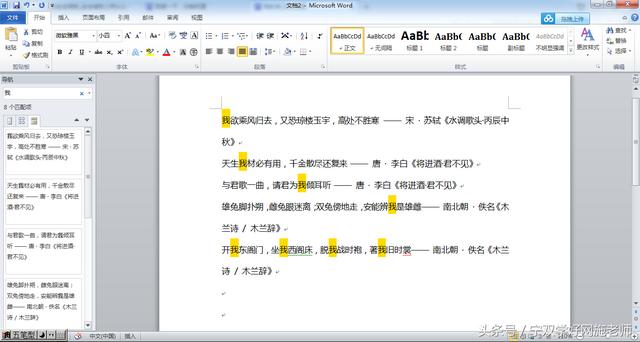老人为什么叫圣地亚哥(圣地亚哥和男孩的谈话)
先过一遍词汇,再看文章选段内容

核心词汇:
1. hook /hʊk/ (v.) 钩住
2. blind /blaɪnd/ (adj.) 盲的、失明的
3. shaft /ʃæft/ (n.) (工具或武器的)杆,柄
4. stern /stɜːrn/ (n.) 船尾
5. club /klʌb/ (n.) 棍;棒
6. subdue /səbˈduː/ (v.) 制服
7. dew /duː/ (n.) 露水
8. temptation /tempˈteɪʃn/ (n.) 诱惑;引诱
9. shack /ʃæk/ (n.) 简陋小屋
10. lean /liːn/ (v.) (使)倾斜,(使)向一侧歪斜
11. wrap /ræp/ (v.) 包;裹
12. bud /bʌd/ (n.) 芽
13. charcoal /ˈtʃɑːrkoʊl/ (n.) 木炭
14. sturdy /ˈstɜːrdi/ (adj.) 结实的
15. relic /ˈrelɪk/ (n.) 遗物
16. fiction /ˈfɪkʃn/ (n.) 虚构的事
17. terminal /ˈtɜːrmɪnl/ (n.) 终端,终点站(文中引申为尾号)

核心短语:
1. Mosquito Coast 蚊子海岸
2. cast net 渔网
3. go after 追逐
4. pick sb/sth up 举起;抱起;提起
5. Sacred Heart of Jesus 耶稣圣心像
6. Virgin of Cobre 考伯圣女图
正文选段
“Tomorrow is going to be a good day with this current,” he said.
“Where are you going?” the boy asked.
“Far out to come in when the wind shifts. I want to be out before it is light.”
“I'll try to get him to work far out,” the boy said. “Then if you hook (钩住) something truly big we can come to your aid.”
“He does not like to work too far out.”
“No,” the boy said. “But I will see something that he cannot see such as a bird working and get him to come out after dolphin (海豚).”

“Are his eyes that bad?”
“He is almost blind (盲的).”
“It is strange,” the old man said. “He never went turtling (海龟,短语意思是钓海龟). That is what kills the eyes.”
“But you went turtling for years off the Mosquito Coast and your eyes are good.”
“I am a strange old man.”
“But are you strong enough now for a truly big fish?”
“I think so. And there are many tricks.”
“Let us take the stuff home,” the boy said. “So I can get the cast net and go after the sardines (沙丁鱼).”
They picked up the gear (工具) from the boat. The old man carried the mast (桅杆) on his shoulder and the boy carried the wooden box with the coiled (卷成卷), hard-braided brown lines, the gaff (鱼叉) and the harpoon (鲸鱼叉) with its shaft (杆).
The box with the baits (鱼饵) was under the stern (船尾) of the skiff (小船) along with the club (棍) that was used to subdue (制服) the big fish when they were brought alongside.

No one would steal from the old man but it was better to take the sail and the heavy lines home as the dew (露水) was bad for them and, though he was quite sure no local people would steal from him, the old man thought that a gaff and a harpoon were needless temptations (诱惑) to leave in a boat.
They walked up the road together to the old man’s shack (简陋小屋) and went in through its open door.
The old man leaned (倾斜) the mast with its wrapped (包;裹) sail against the wall and the boy put the box and the other gear beside it.
The mast was nearly as long as the one room of the shack. The shack was made of the tough bud (芽) shields (保护物) of the royal palm (棕榈树) which are called guano (海鸟粪) and in it there was a bed, a table, one chair, and a place on the dirt floor to cook with charcoal (木炭).
On the brown walls of the flattened (变平), overlapping (重叠) leaves of the sturdy (结实的) fibered (有纤维的) guano there was a picture in color of the Sacred Heart of Jesus and another of the Virgin of Cobre.
These were relics (遗物) of his wife. Once there had been a tinted (染色的) photograph of his wife on the wall but he had taken it down because it made him too lonely to see it and it was on the shelf (架子) in the corner under his clean shirt.

“What do you have to eat?” the boy asked.
“A pot (盆) of yellow rice with fish. Do you want some?”
“No. I will eat at home. Do you want me to make the fire?”
“No. I will make it later on. Or I may eat the rice cold.”
“May I take the cast net (渔网)?”
“Of course.”
There was no cast net and the boy remembered when they had sold it. But they went through this fiction (虚构的事) every day. There was no pot of yellow rice and fish and the boy knew this too.
“Eighty-five is a lucky number,” the old man said. “How would you like to see me bring one in that dressed out over a thousand pounds?” “I’ll get the cast net and go for sardines. Will you sit in the sun in the doorway?”
“Yes. I have yesterday’s paper and I will read the baseball.” The boy did not know whether yesterday’s paper was a fiction too. But the old man brought it out from under the bed.

“Perico gave it to me at the bodega (卖酒的店铺),” he explained. “I’ll be back when I have the sardines. I’ll keep yours and mine together on ice and we can share them in the morning. When I come back you can tell me about the baseball.”
“The Yankees (纽约扬基队) cannot lose.”
“But I fear the Indians of Cleveland (克里夫兰印第安人队).”
“Have faith in the Yankees my son. Think of the great DiMaggio (乔•迪马乔,美国前职业棒球选手).”
“I fear both the Tigers of Detroit (底特律老虎队) and the Indians of Cleveland.”
“Be careful or you will fear even the Reds of Cincinnati (辛辛那提红人队) and the White Sox of Chicago (芝加哥白袜队).”
“You study it and tell me when I come back.”
“Do you think we should buy a terminal (末端,这里引申为尾号) of the lottery () with an eighty-five? Tomorrow is the eighty-fifth day.” “We can do that,” the boy said. “But what about the eighty-seven of your great record?”
“It could not happen twice. Do you think you can find an eighty-five?”
“I can order one.”
“One sheet. That’s two dollars and a half. Who can we borrow that from?”
“That’s easy. I can always borrow two dollars and a half.”
“I think perhaps I can too. But I try not to borrow. First you borrow. Then you beg.”
“Keep warm old man,” the boy said. “Remember we are in September.”
“The month when the great fish come,” the old man said. “Anyone can be a fisherman in May.”
“I go now for the sardines,” the boy said.

When the boy came back the old man was asleep in the chair and the sun was down. The boy took the old army blanket (毯子) off the bed and spread it over the back of the chair and over the old man’s shoulders.
They were strange shoulders, still powerful although very old, and the neck was still strong too and the creases (折痕) did not show so much when the old man was asleep and his head fallen forward.
His shirt had been patched (修补) so many times that it was like the sail and the patches were faded to many different shades by the sun. The old man's head was very old though and with his eyes closed there was no life in his face.
The newspaper lay across his knees and the weight of his arm held it there in the evening breeze. He was barefooted (赤脚的).
The boy left him there and when he came back the old man was still asleep.

免责声明:本文仅代表文章作者的个人观点,与本站无关。其原创性、真实性以及文中陈述文字和内容未经本站证实,对本文以及其中全部或者部分内容文字的真实性、完整性和原创性本站不作任何保证或承诺,请读者仅作参考,并自行核实相关内容。文章投诉邮箱:anhduc.ph@yahoo.com






